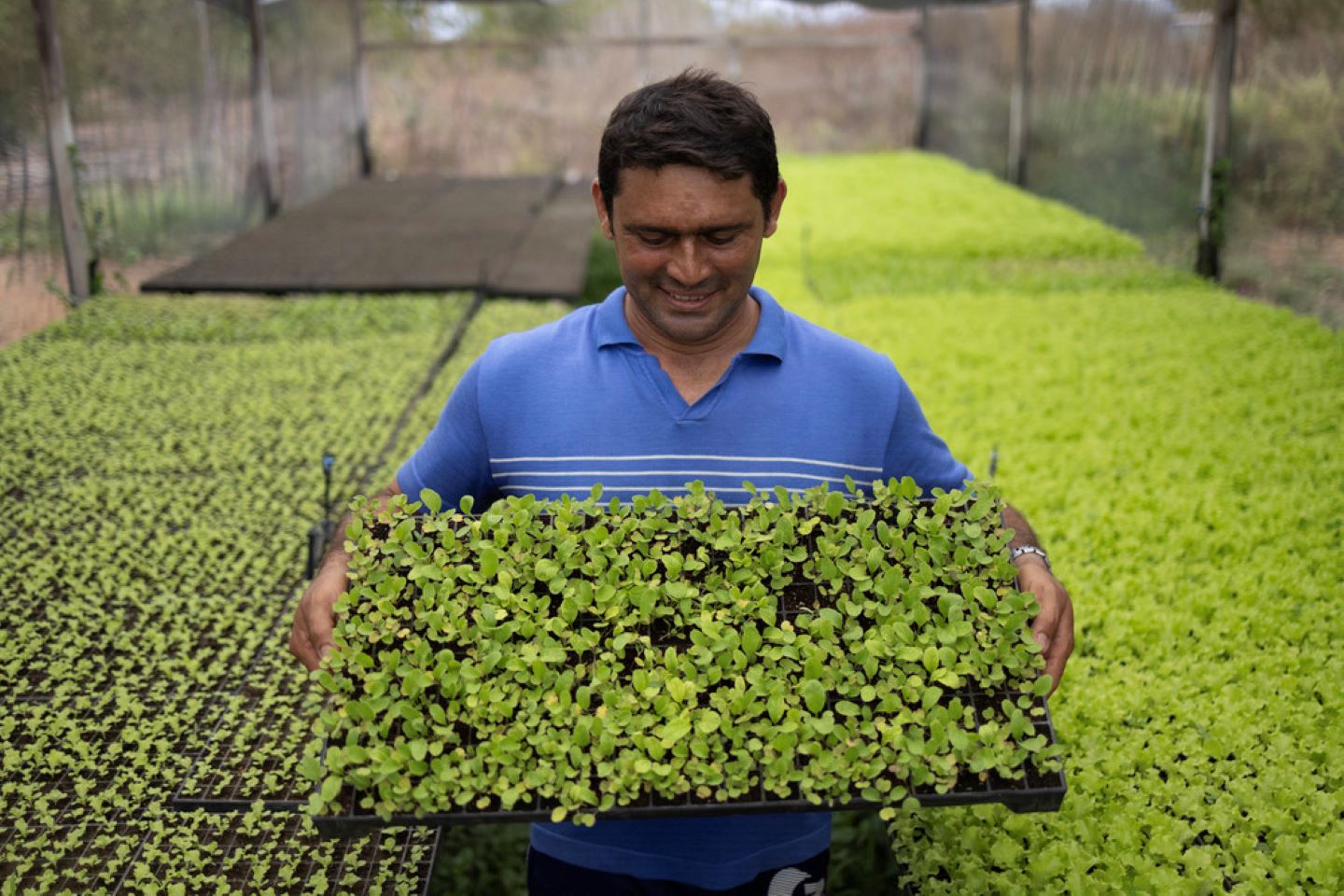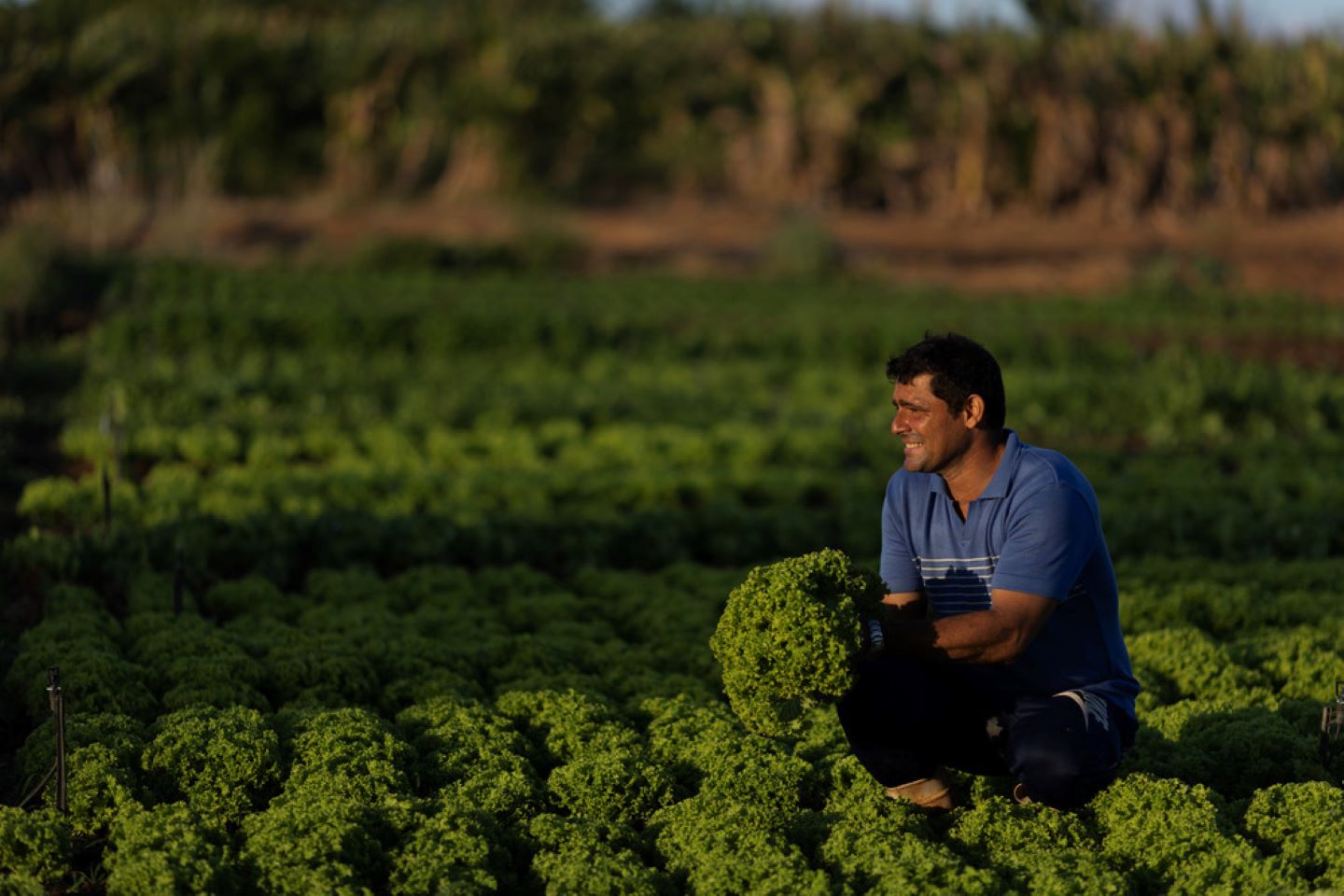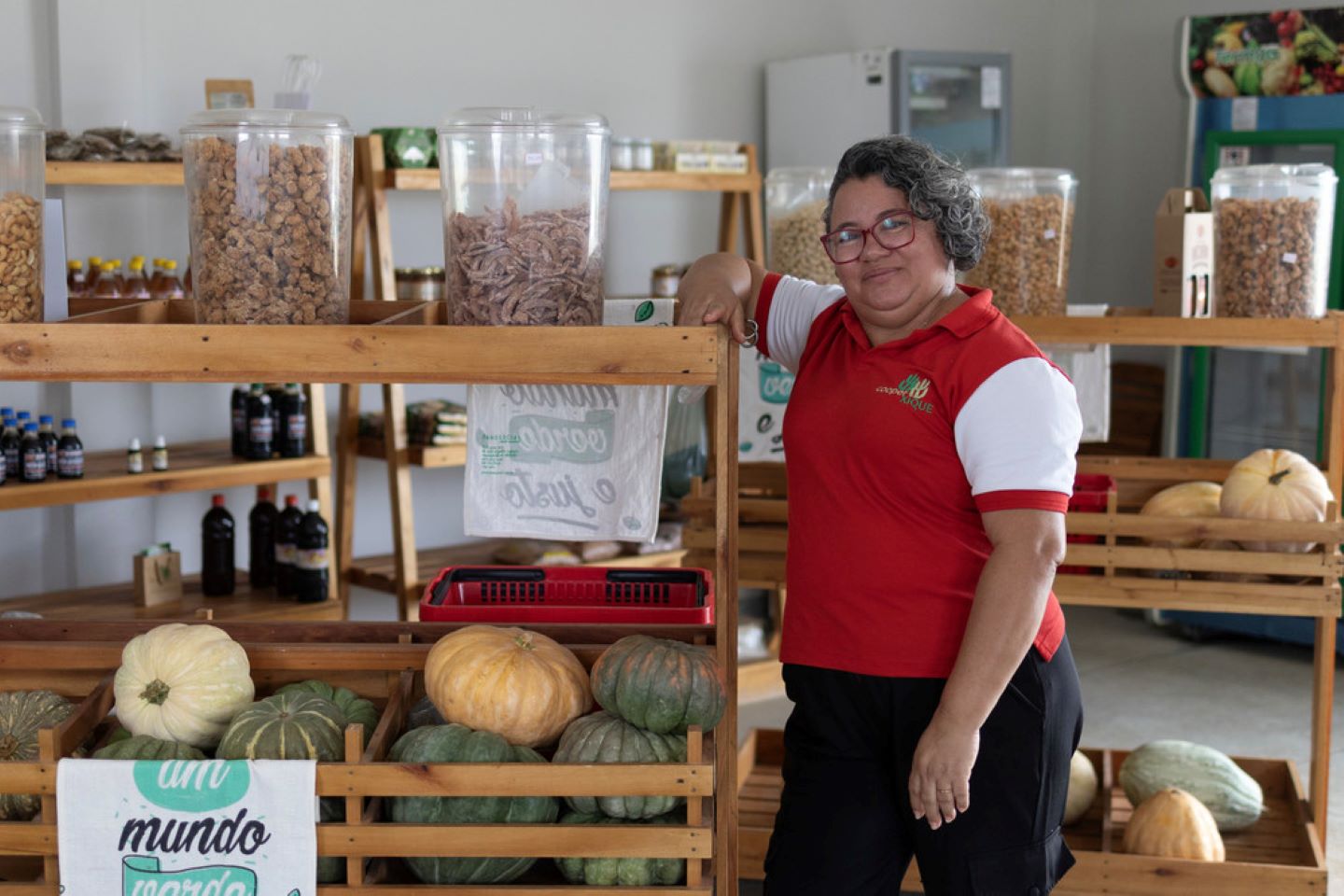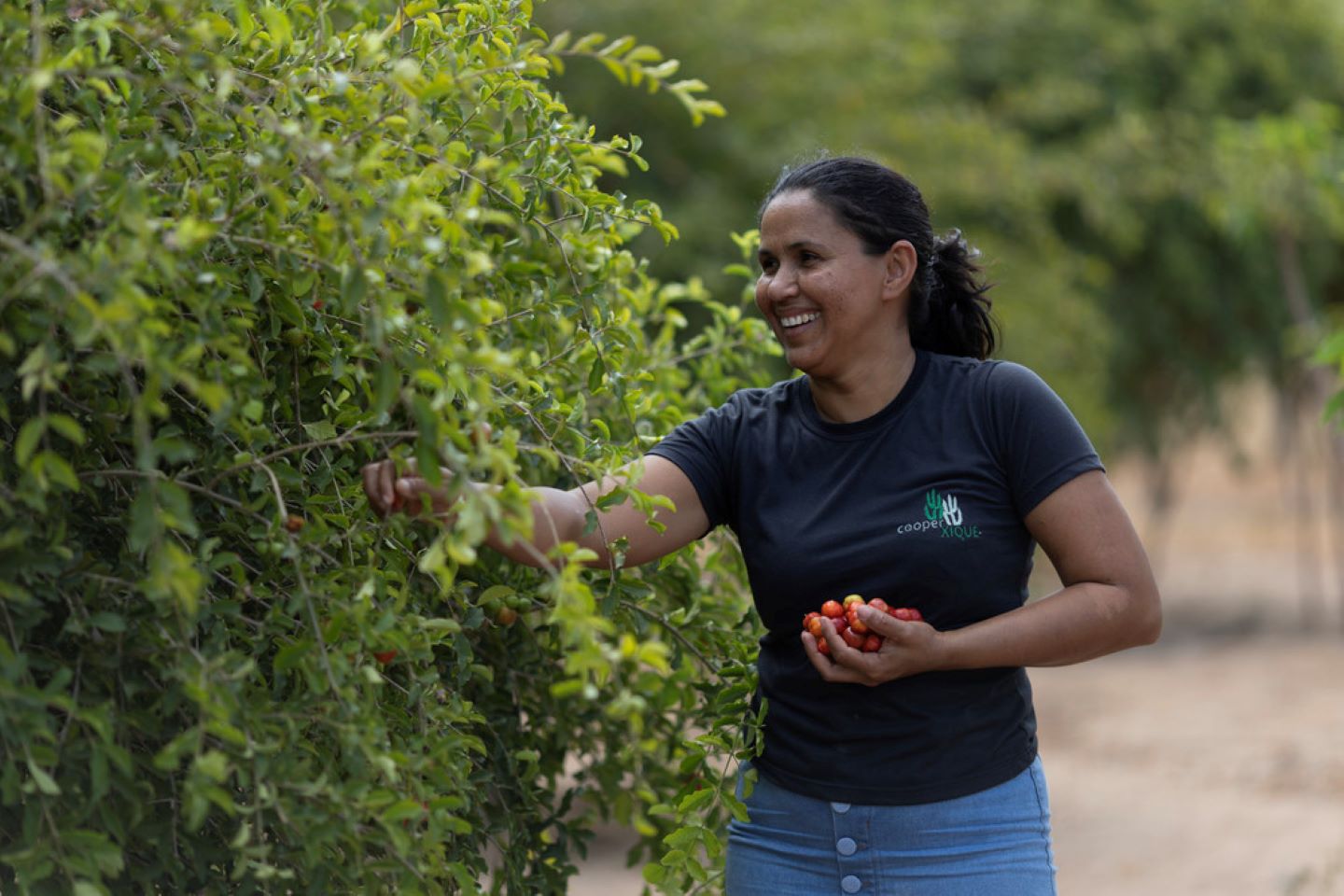
Farming is not easy in Brazil’s semi-arid north-east. Climate change is severely affecting the region, with increasingly erratic rainfall and shifting harvest periods.
Due to environmental degradation, much of its soil is no longer healthy enough to hold onto water, nutrients or microorganisms. Many farmers overuse fertilizer, pesticides and scarce water in order to cope, further damaging the soil and creating a vicious circle.
In the midst of these challenges, micro-, small and medium-sized enterprises (MSMEs) in the state of Rio Grande do Norte are producing food and protecting nature at the same time. And with the support of a local cooperative, these rural MSMEs are having an even bigger impact.
A certified success
Tiago José Souza has grown vegetables on the Asa Branca farm in Mossoró for over 25 years. Despite the changing weather, in recent years he has been able to expand his business far more than he could ever have imagined.
As a member of the Cooperxique Cooperative, which is supported by the Farmers’ Organizations for Latin America project (FO4LA), he was trained in agroecological practices that boost productivity while nurturing the soil.
What’s more, Tiago joined the cooperative's community-led organic certification programme, ensuring he meets high standards without having to pay high prices for private certification.
In this way, his farm prospers while local consumers know they are getting safe, quality produce that doesn’t harm the planet.
For Tiago, small businesses taking decisions together has made all the difference. “Everyone has their voice and can say something that is for the common good," he says.

Championing MSMEs
Back in 1928, Mossoró was the first place in Brazil where women won the right to vote. Today, as the leader of Cooperxique, 50-year-old Francisca Eliane “Neneide” de Lima is leading the way for more sustainable rural development.
Neneide has led the establishment of agroecological fairs where farmers like Tiago exhibit and sell their certified organic produce. Here, safe and nutritious food is being made as accessible to local people as it is to those living in big cities.
“We put people’s lives before financial gain and respect the environment, people and nature,” Neneide says. “It’s not just about poison-free products – there must be no violence against women in them, there must be no child labour.”

Now she’s helping other rural people forge their own path forward through MSMEs – and not just on farms. For example, she suggested that unemployed mother-of-two Ivoneide Alves become a unit leader in a FO4LA-supported fruit pulp processing plant.
Ivoneide coordinated the installation of automated equipment which employees use to pick and process fruit cleanly and efficiently. Twelve varieties of organic local fruit, including cashew and acerola cherries, are turned into pulp and packaged to meet safety standards.
Both she and her partners received training and certification through the Cooperxique Cooperative. Ivoneide recognizes how important it is for consumers to have access to high-quality, sustainable products.

Small agribusinesses, whether farms like Tiago’s or processing plants like Ivoneide’s, are the engines of rural economies – and our hope for a more sustainable agricultural future. It's time to recognize their potential and celebrate these MSMEs, along with the organizations that support them.
Learn more about the unsung importance of MSMEs for global agriculture.
Source: IFAD
 Welcome to the United Nations
Welcome to the United Nations